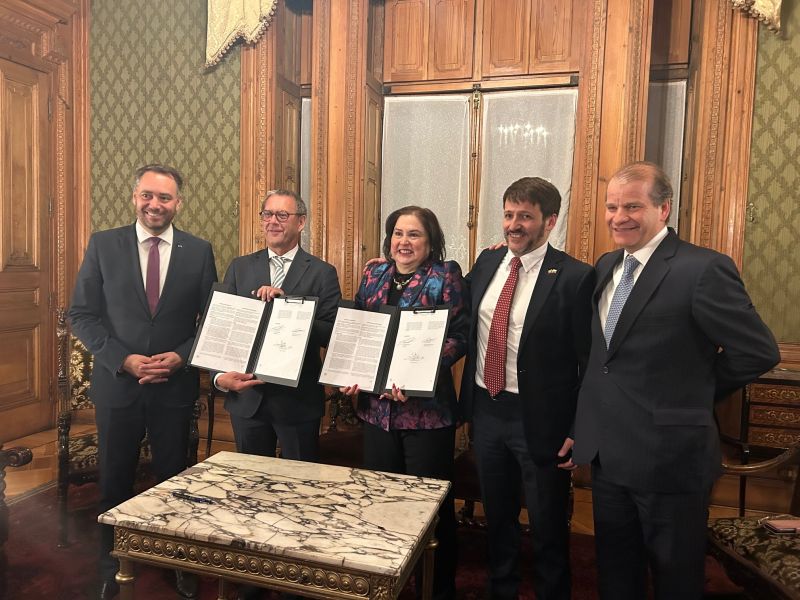Unlocking Green Hydrogen Potential in Chile's Magallanes with Fluxys and ENAP
Key Ideas
- Fluxys Chile and ENAP have signed an MoU to explore hydrogen infrastructure opportunities in Chile's Magallanes region, focusing on transmission, storage, and export.
- The partnership aims to leverage ENAP's assets and Fluxys' experience to develop green hydrogen production in Magallanes, known for its wind resources.
- Fluxys also initiated a cooperation agreement with OQ Gas Networks in Oman to develop hydrogen transportation infrastructure, emphasizing decarbonization efforts.
- In Belgium, Fluxys is constructing a hydrogen pipeline network set to be completed by 2026, aligning with their strategy to invest in low-carbon energy value chains.
Fluxys Chile, a subsidiary of Fluxys, and ENAP, Chile's state-owned oil and gas company, have joined forces to explore hydrogen infrastructure opportunities in Chile's Magallanes region. The memorandum of understanding (MoU) signed between the two companies during the Belgian State Visit to Chile aims to develop infrastructure for green hydrogen transmission, storage, and export. This includes exploring derivatives like ammonia, methanol, and e-fuels, as well as CO2 handling solutions. Leveraging ENAP's assets and Fluxys' expertise, the partnership will foster knowledge exchange and joint project development, building on their existing collaboration in Chile's GNL Quintero LNG terminal.
The agreement marks a significant step towards harnessing the green hydrogen potential of the Magallanes region, known for its favorable conditions for green hydrogen production, including onshore wind resources and strategic access to the Atlantic and Pacific Oceans through the Strait of Magellan. Additionally, Fluxys has extended its international collaborations by signing a term sheet cooperation agreement with Omani state-owned OQ Gas Networks to develop hydrogen transportation infrastructure in Oman. This partnership in Oman aligns with Fluxys' commitment to investing in renewable energy value chains in countries with high renewable potential.
Notably, Fluxys has initiated the construction of a hydrogen pipeline network in Belgium, with the first phase expected to be operational by 2026. The expansion of this network over the following years reflects Fluxys' dedication to advancing low-carbon energy solutions. These strategic initiatives highlight the growing global focus on hydrogen as a key player in the transition to sustainable energy systems.
